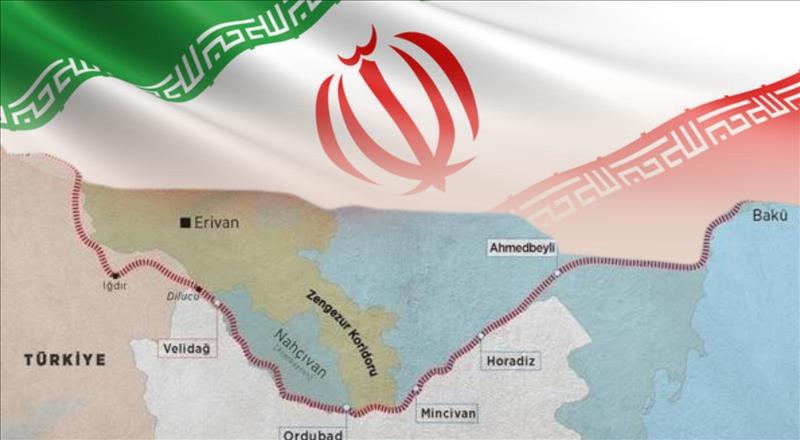
Geopolitical Complexity: Tehran Seeks To Win Yerevan's Support Amidst Its Zangazur Concerns
On October 1, Iran will open its first and largest foreign trade center in Yerevan, Armenia. According to reports, the trade center, backed by Iran's Development and Trade Organization, spans over 18,000 square meters. The opening ceremony will be attended by Iran's Minister of Industry, Mining and Trade Mohammad Atabek, Armenia's Minister of Economy Gevorg Papoyan, and key figures from Iran's industrial sector.
This development comes at a critical time, as Iran has voiced serious concern about the Zangazur Corridor. Spokesperson of Azerbaijan's Ministry of Foreign Affairs Aykhan Hajizada has also recently suggested that Azerbaijan is working on building communication lines through Iran, which adds another layer of complexity to the situation.
Sharing his insights into the matter, Elyar Kamrani, a political expert specializing in the Caucasus, spoke to Azernews , interpreting the move as part of Iran's broader strategy.
“First of all, it should be noted that the rapprochement between Iran and Armenia, both in the political and economic fields, takes place within the framework of deep strategic relations between the two countries. Iran also demonstrates this by using Armenia as an instrument of pressure against Azerbaijan and the countries of the region,” Kamrani stated.
He pointed out that this alliance dates back to Armenia's independence, with Iran supporting Armenia during the First and Second Garabagh Wars. Kamrani added,“The fact that Tehran has a hostile attitude towards Azerbaijan and opened a consulate and commercial facilities in the territory of Armenia, bordering Azerbaijan, in Gafan is also reflected.”
Kamrani further elaborated on Iran's broader motives:“From the beginning, Iran stated that it intends to open a 'free trade zone' in the border zone with Armenia. This has the essence of keeping Iran's Armenian market in its hands and using Armenia as an instrument of pressure on the region.”
He warned that this could facilitate illicit activities, saying, “Another goal is to help terrorist groups and send narcotics from the territory of Armenia to Europe and other countries.
On Azerbaijan's stance, Kamrani referenced recent statements by Azerbaijani Foreign Ministry spokesperson Aykhan Hajizade. He suggested that Azerbaijan views Iran as both an alternative to the Zangazur Corridor and a potential transit partner, especially considering historical transport routes through Iran to Nakhchivan. The transportation link between the two countries gained prominence due to the blockade of Nakhchivan since Azerbaijan's independence. Prior to the pandemic, the land crossing from Azerbaijan to Nakhchivan was predominantly through the northern territories of Iran. It is evident that the primary aim of this statement is to establish an alternative to the Zangazur corridor and to set the course for the development of the transportation route I mentioned."
In concluding remarks, Kamrani stressed Tehran's intention: “Tehran believes that if Armenia improves friendly relations with Iran and has closer relations, Armenia can also support Iran's propaganda against Zangazur. However, it should be noted here that interest in the Zangazur corridor is shown not only by regional powers but also by the United States and Europe. As a result, taking into account that there are common interests here, I think the fact that the corridor will be opened sooner or later seems real.”
Legal Disclaimer:
MENAFN provides the
information “as is” without warranty of any kind. We do not accept
any responsibility or liability for the accuracy, content, images,
videos, licenses, completeness, legality, or reliability of the information
contained in this article. If you have any complaints or copyright
issues related to this article, kindly contact the provider above.

















Comments
No comment